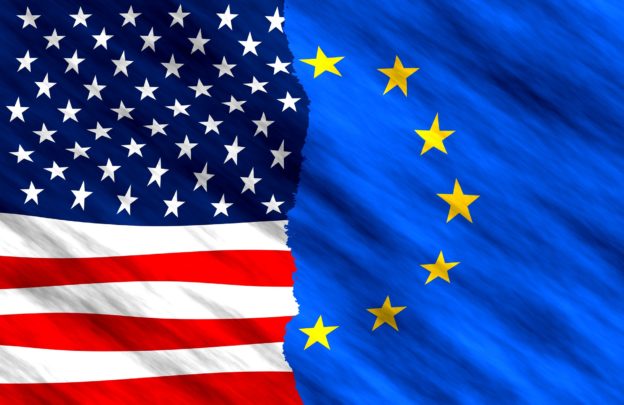On October 2nd 2019, World Trade Organization (WTO) issued its arbitration decision in the Airbus case (DS316), regarding illegal European subsidies granted to Airbus, which paved the way to US countermeasures. This is a new stage in the trade dispute between the US and EU, which began in June 2018, with the tariff increase of the US on steel and aluminum products, leading to EU taxation of “made in USA” products such as Harley-Davidson, bourbon or jeans.
After more than 15 years of procedure, in its report of October 2nd, the Dispute Settlement System (DSS) concluded that the €6.9 billion ($7.5 billion) subsidies granted by France, the United Kingdom, Germany and Spain to Airbus were not in conformity with WTO rules. The negative impact on the American manufacturer Boeing, Airbus’ main competitor, is estimated at several billion dollars in lost revenue.
WTO has therefore authorized the United States to apply countermeasures for the same amount on European imports. The US Administration must now seek the prior approval of the DSS, which is expected to take a decision at a meeting scheduled for 14 October. The implementation of the tariffs is announced for 18 October 2019.
The US government immediately published the list of products concerned by the increase of tariffs through its Trade Representative (USTR). The main targets are aeronautical products from the four “Airbus” Member States (France, Germany, Spain and the United Kingdom) as well as products from the agri-food sector, including wines, spirits and cheese, and the clothing sector. These US taxes will therefore comply with WTO rules and cannot in themselves be subject to retaliatory measures by the European Union.
Nevertheless, this “American victory” must be put in perspective:
- On the one hand, the amount of illegal European subsidies identified by the WTO (US$7.5) is significantly lower than the US claims, which estimated more than US$12 billions. According to the EU, this distortion stems from the fact that the DSS rejected “the majority of US claims” (more than 94%), in particular those concerning the A320 and A330, whose sales are essential for the Airbus Group. Indeed, the loans granted to these two types of aircraft did not affect Boeing’s sales.
- On the other hand, the EU claimed that Boeing had received illegal subsidies from the US between 1989 and 2006, estimated at $12 billion. The WTO Appellate Body had condemned Boeing in March 2019, and the precise amount of countervailing measures that the EU will be allowed to impose on US products will be made public in spring 2020.
The DSS’s decision is final and without appeal but does not include any formal obligation on the part of the US authorities to impose additional customs duties to enforce their rights. USTR has issued a press release stating that they expect to enter into “negotiations with the European Union to resolve the problem in a way that will benefit American workers”.
For its part, Brussels has also been advocating for an agreement between the EU and the United States for several months. Indeed, the cross-application of countermeasures of several billion euros could impact world trade, whose growth is slowing sharply (1.2% in 2019, against an expected 2.6%).
Finally, the European Commission has stressed that, in this conflict directly affecting the American and European aviation giants, China will be the big winner. The Chinese government is currently developing its aeronautical champion, Comac, which could benefit greatly from the fragility of Western companies. It is now becoming essential to have tools to deal with the massive subsidies that China is giving to its aviation industry.
***
DS Customs & Trade team is at your disposal to provide you with any additional information.
CONTACT US :

